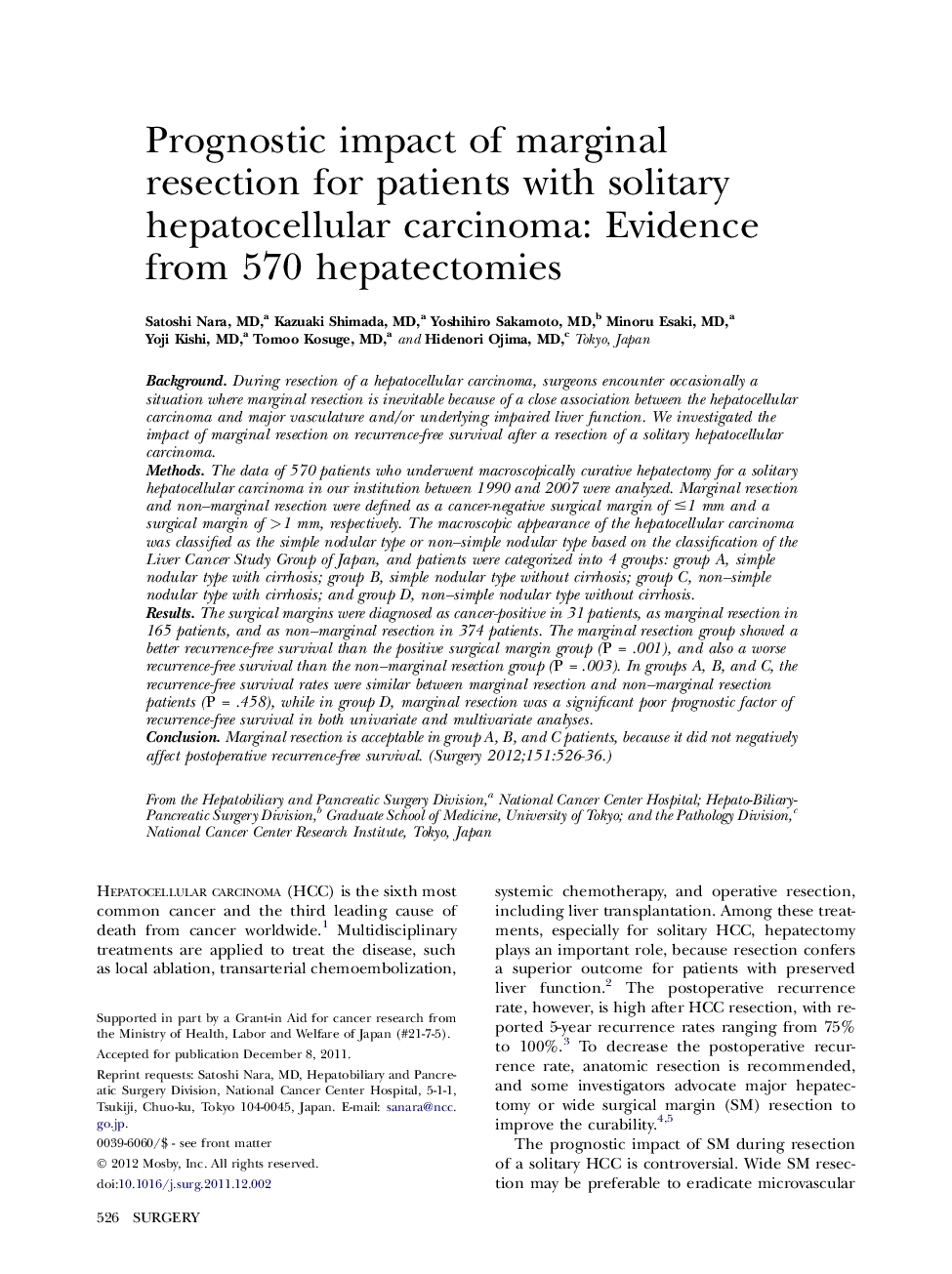| کد مقاله | کد نشریه | سال انتشار | مقاله انگلیسی | نسخه تمام متن |
|---|---|---|---|---|
| 4308083 | 1289269 | 2012 | 11 صفحه PDF | دانلود رایگان |

BackgroundDuring resection of a hepatocellular carcinoma, surgeons encounter occasionally a situation where marginal resection is inevitable because of a close association between the hepatocellular carcinoma and major vasculature and/or underlying impaired liver function. We investigated the impact of marginal resection on recurrence-free survival after a resection of a solitary hepatocellular carcinoma.MethodsThe data of 570 patients who underwent macroscopically curative hepatectomy for a solitary hepatocellular carcinoma in our institution between 1990 and 2007 were analyzed. Marginal resection and non–marginal resection were defined as a cancer-negative surgical margin of ≤1 mm and a surgical margin of >1 mm, respectively. The macroscopic appearance of the hepatocellular carcinoma was classified as the simple nodular type or non–simple nodular type based on the classification of the Liver Cancer Study Group of Japan, and patients were categorized into 4 groups: group A, simple nodular type with cirrhosis; group B, simple nodular type without cirrhosis; group C, non–simple nodular type with cirrhosis; and group D, non–simple nodular type without cirrhosis.ResultsThe surgical margins were diagnosed as cancer-positive in 31 patients, as marginal resection in 165 patients, and as non–marginal resection in 374 patients. The marginal resection group showed a better recurrence-free survival than the positive surgical margin group (P = .001), and also a worse recurrence-free survival than the non–marginal resection group (P = .003). In groups A, B, and C, the recurrence-free survival rates were similar between marginal resection and non–marginal resection patients (P = .458), while in group D, marginal resection was a significant poor prognostic factor of recurrence-free survival in both univariate and multivariate analyses.ConclusionMarginal resection is acceptable in group A, B, and C patients, because it did not negatively affect postoperative recurrence-free survival.
Journal: Surgery - Volume 151, Issue 4, April 2012, Pages 526–536